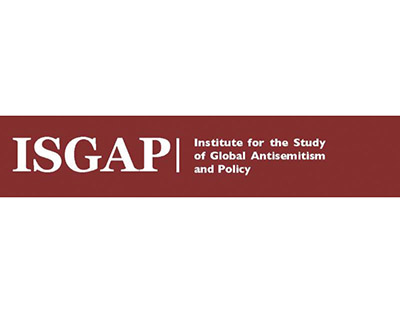
“They’re going to close it down,” I thought as I sat in an auditorium at Yale, waiting for one of the many panel discussions to begin at the conference on “Global Anti-Semitism: A Crisis in Modernity.” I bristled at the thought but couldn’t shake it. I hoped I was wrong. I wasn’t.
The man behind that conference was Charles Asher Small, a Montreal native and graduate of McGill University, who earned his doctorate at Oxford. In 2006, he founded the Yale Initiative for the Interdisciplinary Study of Anti-Semitism (YISSA). This institute was on the cutting edge of a new academic discipline: the study of contemporary anti-Semitism.
Yale University put an end to YISSA in 2011, a year after the conference. Home of the Fortunoff Archives, Yale had been among the first institutions to capture and preserve filmed testimonies of Holocaust survivors. For at least a quarter of a century the university convened and generously hosted annual conferences for scholars and educators on the topic. Why, then, would the university want to disassociate itself from examining modern mutations of the world’s oldest hatred when this very hatred had been the seedbed of the Holocaust? Why at a time when some of the same tropes and calls for a new genocide were being chanted throughout the world, and even on American campuses? And could an institution of higher learning ignore Holocaust-inspired memes and graphics, the Nazi stereotypes abundant in political cartoons and textbooks throughout much of the Muslim world and the conflation of Zionism with Nazism? The Holocaust was supposed to sound the death knell for anti-Semitism but became a tool for anti-Semites and deniers. YISSA’s closure was and remains a victory for them.
A few years later, when YISSA announced a call for papers for their August 2010 conference, I submitted an abstract on a question that had been of increasing concern, “The Effect of the Resurgence of Anti-Semitism on Holocaust Survivors.” Acceptance of my abstract affirmed the value of the topic and served as a prod to design and implement the study. I wrote up my findings and presented the paper. It was subsequently published in one of five volumes on the topic of modern anti-Semitism that emerged from the conference.
By the time the last volume was published, YISSA was history. Protests had landed on the desk of Yale’s president, one from the Washington-based head of the PLO, who called the conference a forum for “anti-Arab extremism and hate mongering.”
Fortunately, Small soon created ISGAP, the Institute for the Study of Global Anti-Semitism and Policy. An ISGAP office was opened in midtown Manhattan and seminars were hosted there and at the Lincoln Center campus of Fordham University. A man on a mission, Small travels across the country and around the world to lecture and host seminars at universities and other venues. He has developed ISGAP outposts in Austria, Canada, Israel, Paris and Rome, fostering a global community of academics and lay leaders who work toward the mission of “fighting anti-Semitism on the battlefield of ideas.”
Alarmed by anti-Semitism on campuses, he conceived an initiative to teach professors to create courses on anti-Semitism. The first such conference took place in 2015 at Oxford University. The only participant outside academia, I was extremely fortunate to be invited to participate. Together with professors from world-renowned universities in the Americas, Europe, Russia, China and India, I spent two weeks in a crowded classroom, learning about modern anti-Semitism from an international array of visiting experts. At the end, we were each obliged to create two syllabuses for college students, and present them to the whole group.
Last September, we were also invited to attend the ISGAP Conference in Rome. In fact, it was both a conference and mission to raise funds to enable the organization to continue its vital work. Those on the mission had a private audience with Pope Francis and could also attend the conference, “Anti-Semitism: Gateway to Terrorism,” hosted by the Vatican; the University of Rome, La Sapienza; and the Italian Parliament. Attendees heard from former Prime Minister Tony Blair, the Mufti of Australia and New Zealand and an academic who is a member of the Knesset. We lunched with Israel’s ambassador to the Vatican, visited Rome’s synagogue and adjacent Holocaust museum and returned for Shabbat services and a delicious dinner at a nearby kosher restaurant. That was a lovely evening at which non-Jews learned about Jewish liturgy, customs and traditions. The wife and daughter of another of the Muslim presenters were especially taken by the singing of “Eshet Chayil,” especially after I told them what the words meant and the weekly message it sends.
This year, ISGAP will hold its fourth conference at Oxford. There is also talk of, at some point in the future, having a summer conference at Oxford specifically for high school (and possibly college) students. Waiting until college to learn about anti-Semitism is dangerous. By the time students get there it’s often too late. And not all students get to college.
The courses I created in Oxford are ready to be taught in a university setting. In the meantime, I share what I’ve learned with tens of thousands when I teach students, educators and the general public about the Holocaust. After all, without anti-Semitism, there would have been no Holocaust. And without the Holocaust, we wouldn’t be witnessing today’s terrifying anti-Semitism.
By Barbara Wind
Barbara Wind is the director of the Holocaust Center of Greater MetroWest.









